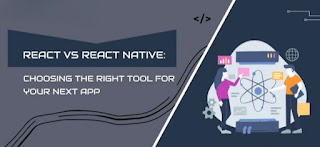The Best IoT Development Platforms and Tools for Developers in 2025
The Internet of Things (IoT) has moved far beyond being a trend—it has become a core driver of digital transformation across industries. From healthcare and smart homes to large-scale industrial automation, IoT is changing how businesses and individuals connect with technology. But the success of any IoT initiative depends not only on devices but also on the platforms and tools developers use to build, launch, and scale their projects. In 2025, the IoT ecosystem is more powerful, diverse, and developer-friendly than ever before.
1. AWS IoT Core
Amazon’s AWS IoT continues to dominate with its secure, scalable, and feature-rich infrastructure. It allows developers to manage millions of devices, process data streams in real time, and integrate machine learning for more intelligent applications. For enterprises managing large and complex IoT operations, AWS IoT is often the platform of choice.
2. Microsoft Azure IoT
Microsoft Azure IoT provides a comprehensive set of services such as IoT Hub and IoT Central, which simplify device management, edge processing, and advanced analytics. Its seamless integration with Microsoft’s ecosystem makes it an ideal option for organizations already invested in Azure cloud solutions.
3. Google Cloud IoT
Google Cloud IoT stands out with its AI-driven capabilities and advanced analytics. Developers can leverage predictive insights, real-time dashboards, and machine learning integration to create smarter IoT applications that go well beyond simple connectivity.
For businesses eager to embrace these cutting-edge solutions but lacking in-house technical expertise, working with a skilled IoT development company can help accelerate implementation, reduce costs, and ensure sustainable scalability.
4. Blynk
Blynk is well-known for its simplicity, making it easy to create mobile and web apps for IoT devices. It’s widely used for rapid prototyping, startups, and DIY projects thanks to its user-friendly approach.
5. ThingsBoard
ThingsBoard is a popular open-source IoT platform that excels in device monitoring, analytics, and data visualization. With support for multiple protocols, it’s highly adaptable and can be customized for complex IoT scenarios.
6. Particle
Particle offers a complete IoT ecosystem that blends hardware, connectivity, and cloud software. Its secure Wi-Fi and cellular capabilities make it an excellent option for building reliable IoT products and managing device networks at scale.
7. KaaIoT
KaaIoT is designed for enterprise-grade projects, offering advanced features such as predictive maintenance, customizable dashboards, and smooth cloud integration. Its scalability makes it a strong choice for industries rolling out large IoT deployments.
With so many capable platforms available, selecting the right one can feel overwhelming. To make a well-informed decision, explore this complete resource on the best IoT development platforms shaping the industry in 2025.
Final Thoughts
The IoT landscape in 2025 revolves around adaptability, innovation, and scalability. Whether you’re experimenting with a prototype or building a large-scale industrial solution, there’s a platform designed to meet your needs. From enterprise-ready options like AWS and Azure to flexible, developer-friendly solutions like Blynk and ThingsBoard, the opportunities are endless. By choosing the right tools and strategies, developers and businesses can create transformative IoT solutions that define the future.


.jpg)
Comments
Post a Comment